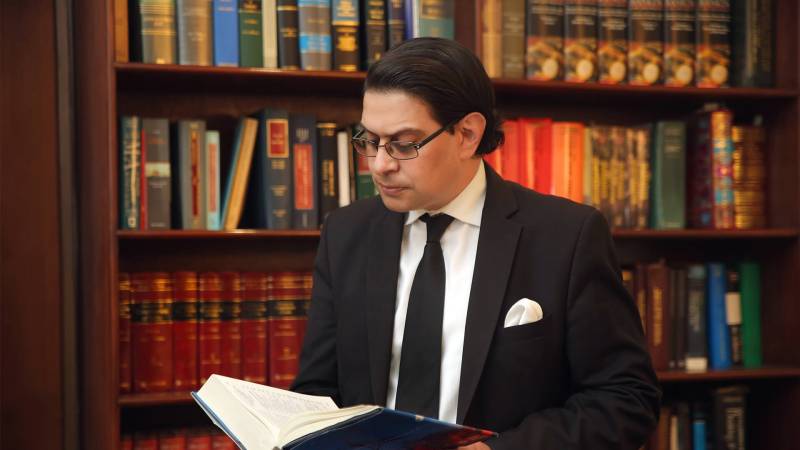
On a cool February evening I remember standing in numbed silence before a pile of legal-size files buried under a thick layer of dust gathered over a couple of decades in a semi-lit annex of a sprawling Lahore house. It was the kind of state of mind whereby one is overawed by emotions, the heart weeps but the brain keeps telling you “it was just an aberration, the noble and fair-to-all justice system remains unchanged and there is even hope of righting such historical wrongs”. The files contained vital pieces of evidence, statements of witnesses and police investigation reports directly incriminating Zulfiqar Ali Bhutto in the Liaquat Bagh, Rawalpindi firing case.
The visit was hospitably arranged by a senior lawyer seeing my fascination with the Bhutto phenomenon who had once replied to me, “I was his prosecutor” upon my query on his views about Bhutto’s legacy in terms of its lasting effects on our politics and the judicial system.
Although standing next to such a stack of files is akin to cuddling a veritable bombshell, but the realisation that the world hadn’t stopped as a result of that infamous and grave travesty of justice resulting in Bhutto’s judicial murder somehow calmed one’s nerves, albeit momentarily. Having said that, the troubling thought disturbingly rankled, and still does to this day, that back-up plans to physically eliminate him were well and truly in motion in case Bhutto got off the hook in the Nawab Muhammad Ahmad Khan case.
Just over a couple of decades later, Nawaz Sharif became the next victim. Interestingly, although the temptation and expediency to execute a politician had taken a back seat by the time Musharraf promised to usher Pakistan into an era of enlightenment and prosperity in 1999, but Sharif’s popularity graph had gone up papering over his shortcomings as a leader just as Bhutto’s—at the time—draconian measures to tame and neutralize his opponents, have been forgotten as if those never happened. People still talk about Bhutto tinkering with the maximum age limit of high court judges to get rid of a competent judge like Sardar Muhammad Iqbal, amongst others. Hardly an act synonymous with a political dispensation based on rule of law and constitutionality!
On a personal level, February 8 started off as just another day with the conspicuous absence of cellular coverage across the country but, despite that, by mid-day the mood and the resultant trend of voting had become quite clear in the Lahore constituency of NA 128—people had decided to vote in protest against the establishment and in droves. Salman Akram Raja looked destined to be a parliamentarian till a meticulously planned assault on the RO’s office by a mob wielding wooden sticks late in the night disturbed the tranquil calm giving the police and election officials the perfect excuse to make a mockery of the results by demonstrating infantile ingenuity while changing the figures on Forms 45—a script bound to win an Oscar in the tragicomedy category in its own right.

Raja had campaigned on the single but immensely appealing and catchy slogan of ‘zulm ka badla vote’ (vote against tyranny), perhaps his biggest crime in the weird game of thrones the country has been currently going through. So much so that, surprisingly and yet quite refreshingly, his stance on the political engineering done in 2017-2018 meant to oust PMLN and Mian Nawaz Sharif from power—though non-existent from most PTI nominated candidates’ rhetoric—has been the same as that employed to get rid of PTI and Imran Khan.
Having undergone the unforeseen trauma of a troubling and unjust outcome on the election-day which unambiguously beckoned glory as the polling time ended, my 24 hours ground to a halt as exhaustion and an indescribable feeling of defenselessness replaced the earlier positive frame of mind with which the day had started.
By far the most problematic aspect in all this is our decision makers’ eagerness to bring economic prosperity without factoring in the social and political freedoms enjoyed by Pakistanis which are quintessentially sub-continental in nature and have little to do with repressive societies like, for instance, China. The lesson of history is no lessons are learnt from it with—in Pakistan’s case—a very feeble exception of both the deep state and politicians grudgingly acknowledging each other’s territory filling one with the hope of the country being well and truly on the evolutionary path, provided all the protagonists stick to the plan of such an evolutionary option, albeit an excruciatingly sluggish one.
In the prescient words of veteran journalist, Najam Sethi, uttered well before February the 8th, on account of the diabolically foolhardy approach adopted on an unprecedented scale by the miltablishment, 2024 general elections could be aptly described with a cricketing jargon: “well left”.
The irony of the whole sordid saga is not lost on anyone when the state that once treated it’s subjects from the erstwhile East Pakistan with wanton hatred and racist prejudice, seems enamoured of the so-called Bangladesh-model in the name of progress. The times we live in!

